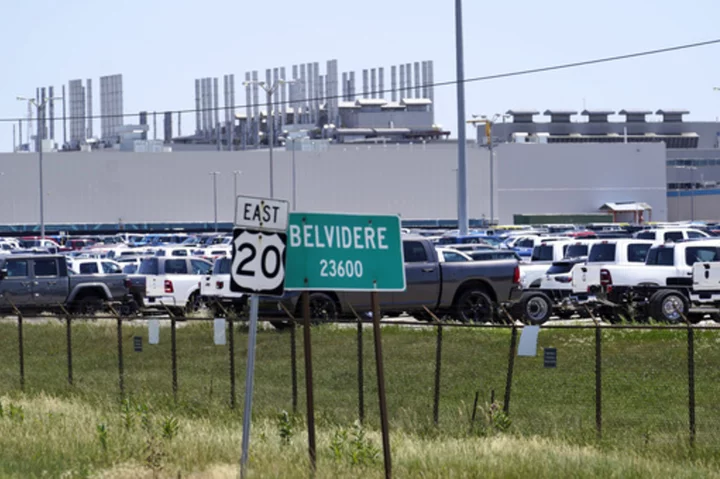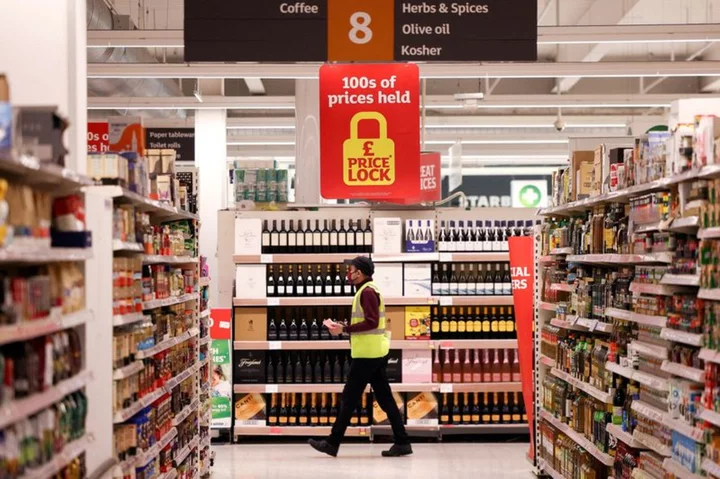BERLIN (AP) — German inflation eased to 6.1% in May following several months of declines, even as Europe's biggest economy registered another painful increase in food prices of nearly 15%.
Preliminary figures show that the annual inflation rate was lower than the 7.2% registered in April, the Federal Statistical Office said Wednesday. In February, it stood at 8.7%.
Increases in energy prices, which drove inflation immediately after Russia's invasion of Ukraine last year, were much lower in May at 2.6% — in part because of the sharp rises a year earlier and government efforts to offset their impact.
Those measures include the introduction of a ticket that allows people to use local and regional public transport across Germany for 49 euros ($52.50) per month. That ticket has been available since May 1, and about 10 million people have bought it so far, according to the VDV group, an association of transport companies.
Food prices now are driving inflation, although the annual increase in food costs was down to 14.9% in May from 22.3% in March.
On Tuesday, the statistics office said real wages in Germany were 2.3% lower in the first quarter than a year earlier, despite a 5.6% increase in nominal wages.
Last week, official data showed the German economy shrank in the first three months of this year, marking the second quarter of contraction that is one definition of recession.
Gross domestic product declined by 0.3% in the January-March period compared with the previous quarter. That follows a drop of 0.5% in the last quarter of 2022.
Germany is one of the 20 countries that uses the euro currency, and inflation figures for that wider eurozone will be reported Thursday. The rate inched up to 7% in April.









